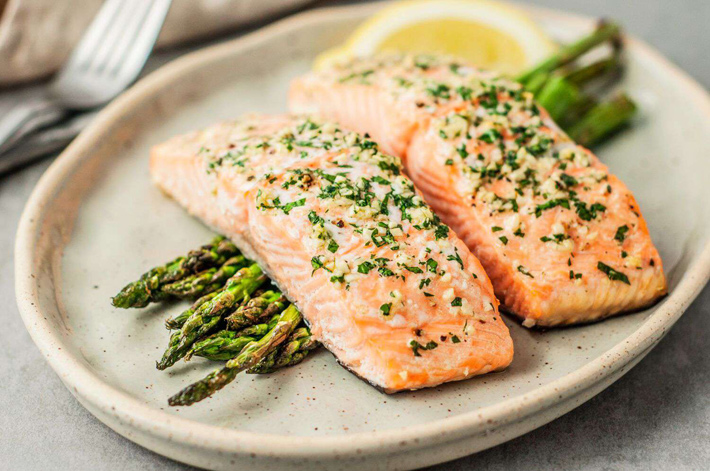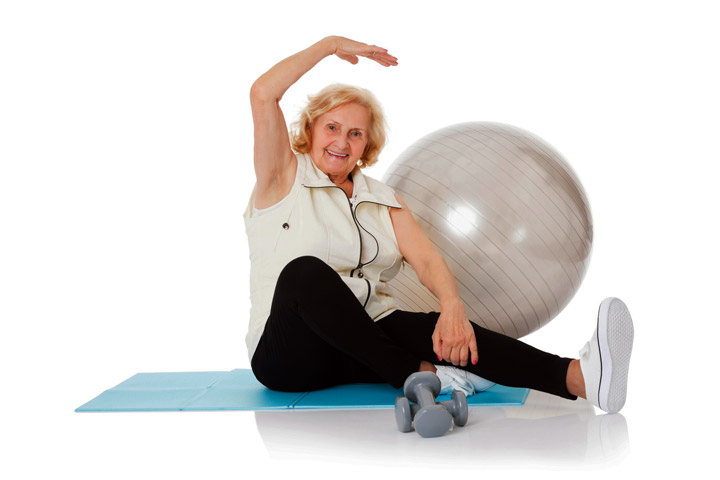
When you hit your 40s, you learn very quickly that the exercise and diet routines that sailed you through your 20s and 30s just aren’t going to cut it anymore. Yes, your metabolism has slowed, and so has your body’s natural production of human growth hormone and your thyroid hormones (which regulate your metabolism). In the mid-40s muscle mass begins to decrease and fat deposits begin to build up. This can lead to obesity, diabetes, high blood pressure, heart problems, stroke, and some forms of cancer.
But that doesn’t mean that dropping weight in your 40s is impossible. Quite the opposite, actually. With a targeted routine, a little discipline, and a few smart steps, you can flatten your belly and get your younger body back in no time.
Weight Loss Tips for Your 40s
First, the bad news: Your metabolism does slow down
If it seemed like you suddenly started struggling to lose weight around a certain age, it wasn’t your imagination. Most women hit their peak metabolic rate in their late teens and their early 20s, while most men’s peak before age 25. At around 40, your hormones start to tank, and your metabolism follows suit.
This doesn’t mean you should give up. With a little knowledge and tweaks to your diet and daily routine, you can still shed pounds and maintain a healthy weight.
Stop trying to ‘make up for’ your food choices with exercise

You may have been able to work off a huge sundae with a long run in the past, but the fact is, we need fewer calories in our 40s. You would have to do more exercise to “work off” a smaller treat than you used to, which will only lead to disappointment.
Instead, just allow yourself treats in moderation and try to avoid major food binges.
Go for quality calories over empty ones
In your 40s, it’s more important than ever to eat the right foods to fuel your workouts. It’s not just how you eat, but what you eat that matters. Adding more protein to your diet and watching your intake of carbs can help you lose weight at any age. But if you choose nutrient rich foods every chance you get, you’ll keep your metabolism revved because the body has to work harder to digest them. As an added bonus, you’ll help keep age-related muscle loss at bay.
Choose fresh fruits, vegetables, lean protein, healthy fats, and some complex carbohydrates (think whole grains and sweet potatoes) and you’ll notice a real difference.
Avoid excess sugar, fast food, and alcohol
It goes without saying that these are three things that should be avoided by anyone who wants to lose weight. But for both men and women, cutting back on them is even more essential to maintaining a healthy weight. Don’t eliminate them entirely (unless you really want to) — you’ll just set yourself up for failure. Just be more conscientious of your choices. For example, forego a slice of cake at a party in favor of a glass of red wine.
Pick up the weights

The common belief is that cardiovascular exercises burn calories and strength training builds muscle. That’s true—to a point. While cardio is great for your heart, increasing lung capacity and decreasing stress, that doesn’t mean you should do it exclusively, ignoring the weight-loss benefits of strength training.
Losing muscle mass contributes to a slower, compromised metabolism, and a softer, rounder shape. Muscle mass must be maintained and built up—especially as we age—in order to lose weight and keep it off.
Working out with weights a couple of times per week is enough to reverse the loss of muscle mass. Luckily, thanks to our knowledge about the benefits of weightlifting, more people than ever are choosing to focus more on weights than cardio (although both are essential). But those over 40 especially should focus on weight training. You’ll lose more body fat, increase your physical strength, and can even reduce your risk of heart disease and diabetes.
Stay Consistent
While it may be tempting to skip a gym day here or there, staying consistent is the key to maintaining your muscle mass as you age. In fact, researchers in Denmark found that just two weeks of immobility significantly reduced muscle mass that six weeks of training afterward couldn’t make up for. Create a program that fits your busy professional and family schedule. If you can consistently exercise only 20-30 minutes, do it. The longer days will present themselves and you’ll be better conditioned to take advantage of them.
Carry that mindfulness over into your eating
If you don’t already do so, pay careful attention to your meals. Our 40s are usually a very busy time, whether we’re raising a family or pursuing a career (or both). But if you grab food on-the-go all the time, you’re much more likely to overeat. Take a little time to plan your meals for the week, prepping everything you can. And when mealtime comes around, sit down, eat slowly, and allow yourself to savor every bite. You deserve it.




Leave a Reply